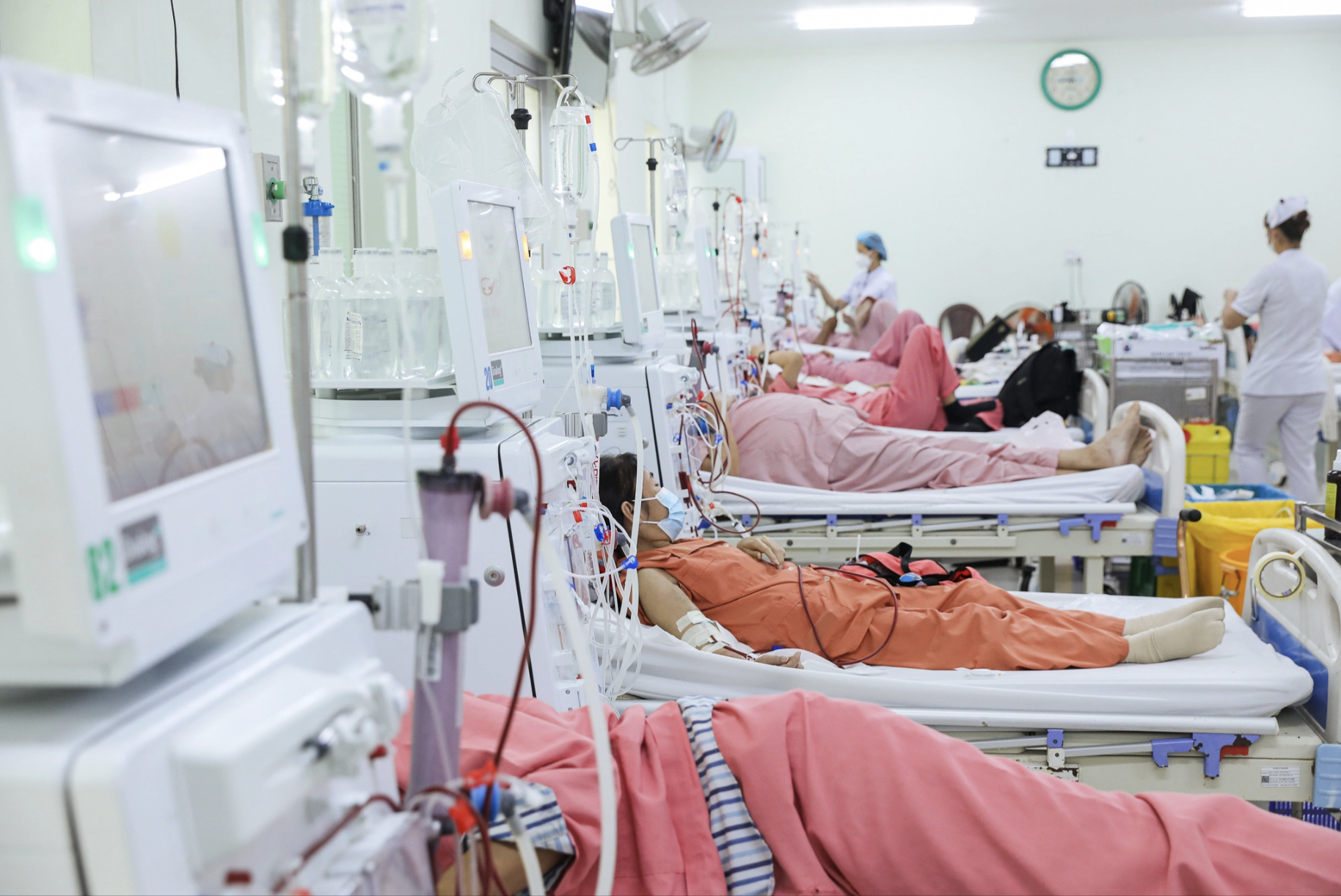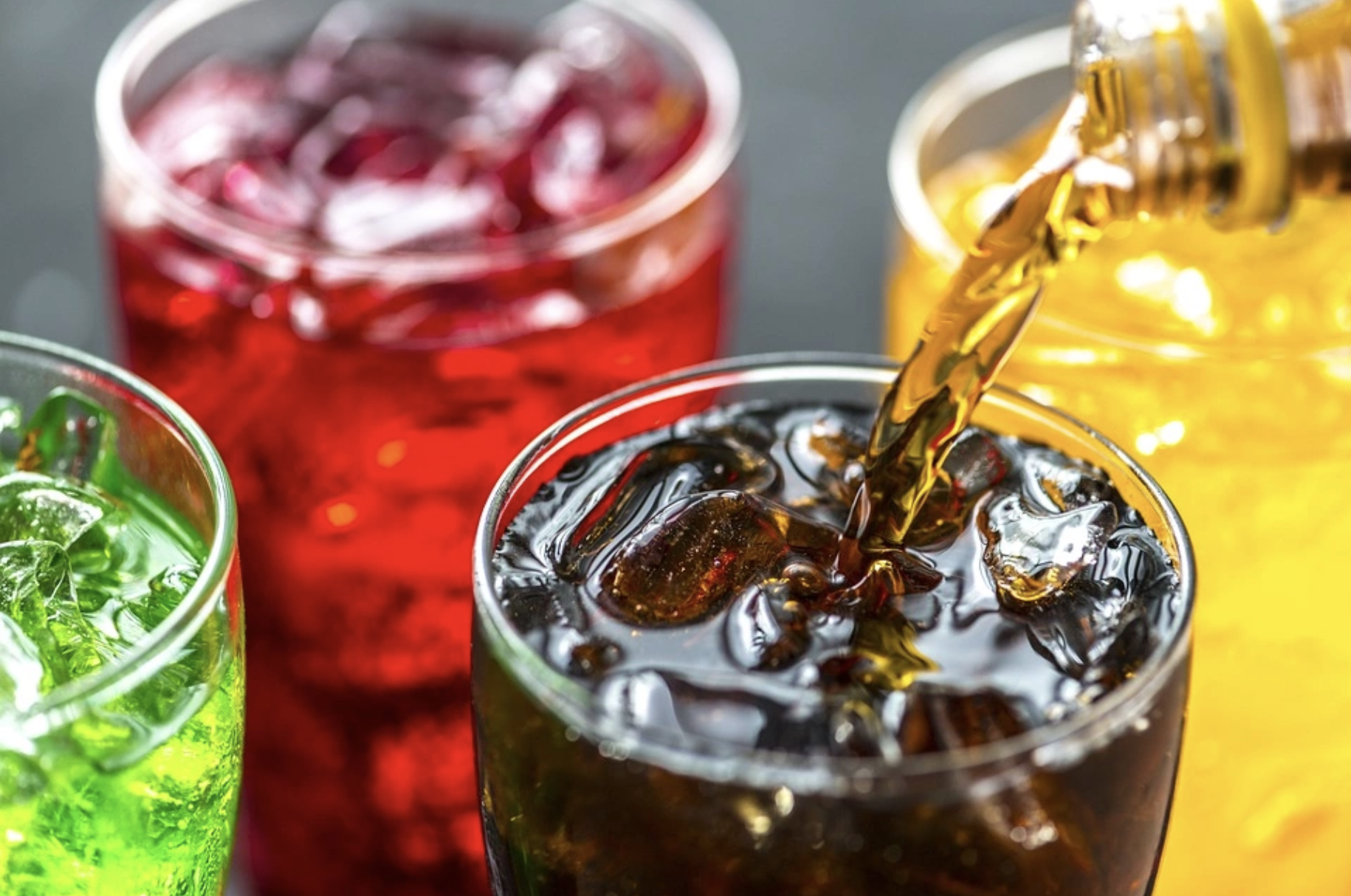During a routine check-up last September, Sang's doctor informed him that his blood pressure had risen to 180/120 mmHg, his creatinine levels were high, and his glomerular filtration rate (GFR) had decreased, putting him at imminent risk of kidney failure. Relating his medical history to the doctor at the University Medical Center, Sang stated he was perfectly healthy, a non-smoker, didn't drink alcohol, and had no underlying health conditions. His only notable habit was a high-sodium diet.
"I usually eat salted fish with rice; I always need fermented shrimp paste, shrimp paste, or linh fish paste... It adds flavor," he said, adding that his kitchen cupboard was stocked with various dried foods, from dried fish and shrimp to dried meat. The doctors prescribed blood pressure medication and advised him on a low-sodium diet. After 6 months of treatment and dietary changes, his kidney function improved, and his blood pressure stabilized at 120-125/80 mmHg.
In another case, 21-year-old Minh, a final-year student at a university in Hanoi, frequently consumed energy drinks to cope with academic pressure, sometimes adding painkillers to stay alert during late-night study sessions. Despite experiencing fatigue and decreased urination, he neglected to seek medical attention.
Only when his condition worsened with swollen feet, persistent vomiting, and exhaustion did his roommate rush him to Bach Mai Hospital. There, Doctor Duong Minh Tuan from the Department of Endocrinology and Diabetes diagnosed his kidney function as being below 20%. According to Doctor Tuan, Minh's unhealthy lifestyle, particularly the overuse of energy drinks, had severely damaged his kidneys. Despite receiving intensive treatment, the full restoration of his kidney function is unlikely.
 |
Dialysis patients at Cho Ray Hospital, Ho Chi Minh City, 3/2024. Photo: Phung Tien |
Dialysis patients at Cho Ray Hospital, Ho Chi Minh City, 3/2024. Photo: Phung Tien
Similarly, 27-year-old Han regularly slept only two hours per night. She experienced bone and joint pain, shortness of breath, swollen feet, and a persistent cough with phlegm since early 2024. Believing these symptoms would resolve on their own, she didn't consult a doctor. Mid-year, she suddenly fainted at work. Upon hospitalization, doctors diagnosed her with end-stage renal disease. Han had maintained an unhealthy lifestyle for years, characterized by late nights and frequent consumption of sugary drinks.
"I've had these habits since I was in school. Back then, I felt fine, so I didn't pay attention," she said.
Han admitted she had never known about kidney failure and hadn't anticipated its severity. Upon receiving the diagnosis, she began researching and learned she would need lifelong dialysis or a kidney transplant to survive. Fortunately, she received a successful kidney transplant from her mother in mid-May.
Approximately 12.8% of the Vietnamese population, equivalent to over 8.7 million people, suffer from chronic kidney disease. Notably, the annual incidence rate is around 8,000, with the 18-30 age group accounting for 20-30% of new cases. The number of people requiring dialysis reaches approximately 800,000, representing 0.1% of the population. In addition to kidney diseases, hypertension and diabetes, unhealthy lifestyles also contribute to kidney failure. Among these, excessive salt intake and overuse of sugary drinks are common habits among many Vietnamese, both of which are harmful to the kidneys.
The World Health Organization (WHO) recommends that adults consume less than 5 g of salt per day, equivalent to about 2,000 mg of sodium. However, a survey by the National Institute of Nutrition reveals that Vietnamese people consume twice this recommended amount on average.
Doctor Ngo Thi Kim Oanh from the University Medical Center - Facility 3 explains that prolonged high-sodium diets are a leading risk factor for glomerular damage. When sodium intake exceeds the body's physiological processing capacity, the kidneys are forced to work harder to excrete the excess salt. This process increases the filtration pressure in the glomeruli, activating the renin-angiotensin-aldosterone system, which in turn raises blood pressure and promotes renal interstitial fibrosis.
People are often unaware of the "hidden" sodium in their daily diets, especially from processed foods such as instant noodles, sauces, canned goods, fast food, and dried snacks (dried chicken, dried beef). This chronic sodium overload not only causes hypertension but also increases proteinuria, an early sign of chronic kidney damage.
Along with excessive salt intake, the consumption of sugary drinks in Vietnam has also surged in recent years. Sugary drinks, as defined by the WHO, include all beverages containing free sugars (added sugars): carbonated and non-carbonated soft drinks; fruit and vegetable juices and fruit/vegetable-based drinks; liquid and powder concentrates, flavored water, energy and sports drinks; ready-to-drink teas; ready-to-drink coffee; and flavored milk drinks.
Doctor Nguyen Van Thanh, Deputy Head of the Department of Nephrology - Urology at Hanoi Medical University Hospital, explains that sugar can cause metabolic disorders, weight gain, and obesity, leading to diabetes – a major risk factor for kidney vascular damage and chronic kidney disease. Excessive sugar consumption also increases salt absorption, inhibits nitric oxide production (a substance that helps dilate blood vessels), and promotes kidney stone formation.
 |
High consumption of sugary drinks harms kidneys. Photo: encyclopedia |
High consumption of sugary drinks harms kidneys. Photo: encyclopedia
Kidney failure is a silent disease. Early symptoms are often subtle, leading many young people to discover the condition only when it's too late. By the time symptoms like swollen feet, decreased urination, nausea, and fatigue appear, the kidneys have already suffered significant damage. At this stage, treatment can only maintain remaining function, not fully restore it. Chronic kidney disease patients require dialysis three times a week, each session lasting several hours. The high treatment costs, coupled with the negative impact on work and mental health, can lead many young patients into depression.
To protect kidneys, health experts recommend minimizing the use of fish sauce, soy sauce, and other strong seasonings. Instead, prioritize a low-sodium diet, using lemon or vinegar to enhance flavor. Limiting processed foods and carefully reading nutrition labels to choose low-sodium products is also crucial. Reducing added sugar intake, especially from sugary drinks, milk tea, and sweets, is equally important.
Maintaining a healthy lifestyle with a balanced diet, adequate sleep, sufficient water intake, and regular exercise is key to disease prevention. Individuals with underlying conditions like diabetes or hypertension should adhere to their treatment plans and attend regular check-ups. Annual health check-ups, including kidney function tests, are essential for early detection and timely treatment of any abnormalities.
My Y
*Names have been changed












